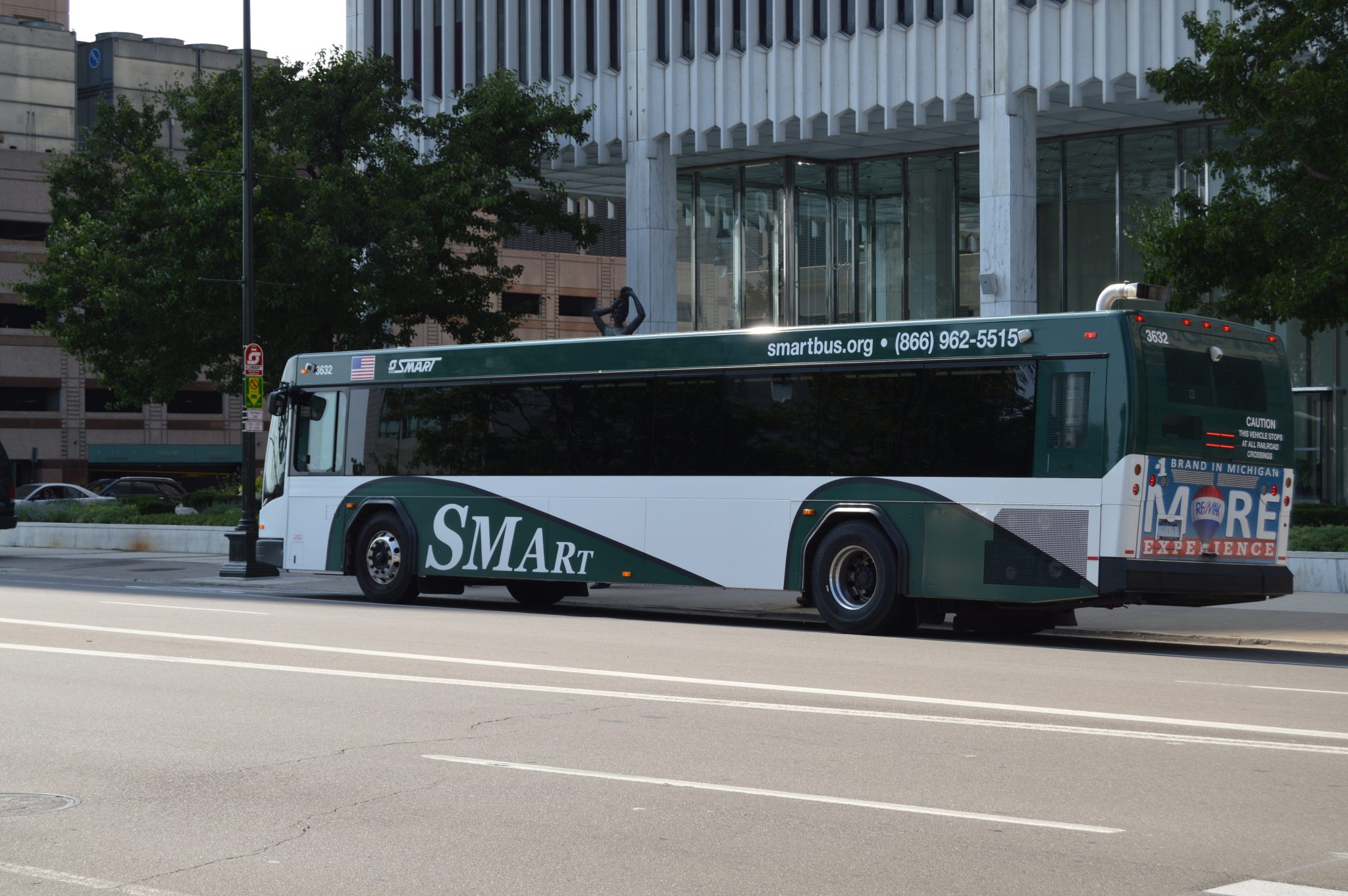Transit Finds a Way During Pandemic
The COVID-19 pandemic disrupted an already fractured metro Detroit transit system, highlighting areas for long-term improvement.

Detroit has long had a complex relationship with public transit, and the COVID-19 pandemic has further complicated that relationship. The disruption to public transit imposed by COVID-19 has proved to be trying and illuminating. The health crisis has impacted ridership, routes and public sentiment. While certainly not ideal, the evolution of transit during the pandemic has shined a light on possible solutions for metro Detroit’s long-neglected public transportation systems.
Listen: What will public transit in metro Detroit look like post-COVID-19?
Guest
Dave Gifford is a Macomb County-based transit advocate, founder of Transit Guide: Detroit and a board member of Transit Riders United. He also has a new blog post on Medium titled “Transit, Uh, finds a Way.” Gifford says the pandemic radically impacted public transportation, forcing agencies to adapt fast. “Ridership has fallen off dramatically … so a lot of transit agencies turned off the fare boxes,” says Gifford. A pause in fares is something Gifford says advocates have debated as a permanent solution. “There are arguments for and against making transit free since most transit providers don’t actually make the majority of their money from the fares,” says Gifford.
The pandemic, according to Gifford, also emphasized important facts about ridership. “It really highlighted one of the things that a lot of transit advocates have thought for years, that a lot of transit agencies focus on the 9-5 commuter routes and increasing service around those times … but they found a lot of people ride transit during the day,” says Gifford. Daytime riders, he says, have been hurt the most by the disruption in service patterns and route cuts.
Moving forward, Gifford says the fate of bus services in Detroit unfairly relies on the votes of Macomb County residents. “To improve bus service in Detroit they either have to increase the city budget, which we know it kind of tight right now because of COVID … the current system I don’t believe is very equitable, the majority of bus ridership in metro Detroit is African American and the majority of car drivers that would be voting on this [the millage] would be white,” says Gifford on the biased nature of the four-county regional transit plan.
Trusted, accurate, up-to-date
WDET is here to keep you informed on essential information, news and resources related to COVID-19.
This is a stressful, insecure time for many. So it’s more important than ever for you, our listeners and readers, who are able to donate to keep supporting WDET’s mission. Please make a gift today.
